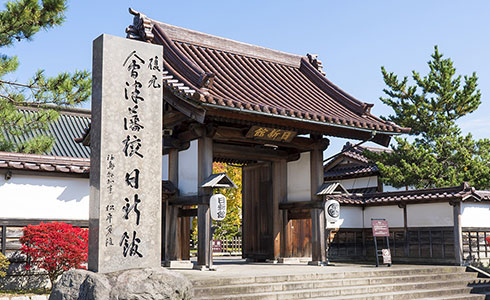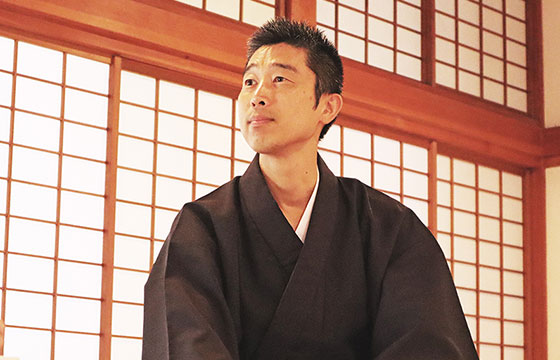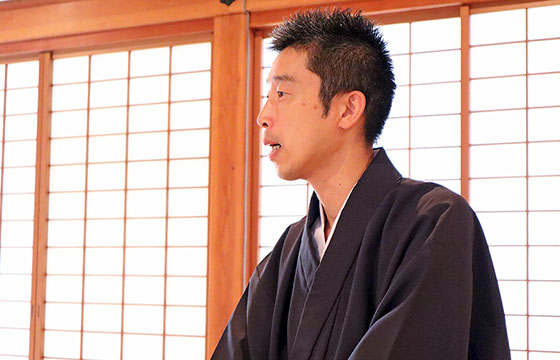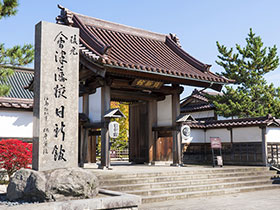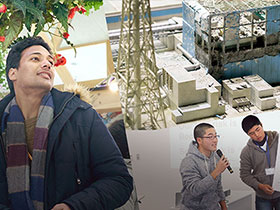During the Edo Period, the Tokugawa shogunate ruled Japan from Edo, the former Tokyo. In Fukushima lived the Aizu Clan, who were trusted deeply by the Tokugawa rulers. During the Boshin Civil War 150 years ago, the Aizu samurai fought loyally for the Tokugawa shogunate.
Aizu & the samurai code
Were they simply fighting out of obligation towards Tokugawa? Some say their resilience came from samurai spirit.
Takahiro Iwasawa from Nisshinkan School talks about Aizu's samurai spirit. For Iwasawa, the samurai spirit of the Aizu people during the Boshin War is rooted in the education received at schools like Nisshinkan.
"Nisshinkan was founded to enable the Aizu Clan to flourish, through raising future generations of samurai. A broad-ranging curriculum spanning literary and military study enabled Nisshinkan to produce countless talented individuals, leading to its reputation as the best clan school in Japan."
We often think of samurai solely as warriors, but, as Iwasawa explains, "Samurai did fight. But they also set examples for those around them about how to behave towards others."
The Ju no Okite Code was integral to Aizu Clan education. It consists of 7 promises, and 1 proverb: "Naranu koto ha naranu mono desu" ("what is wrong, must not be done"). This proverb sheds light on the determination of samurai during the Boshin War.
Aside from academic subjects, students studied combat-related activities, including horsemanship, gunmanship, and martial arts like kendo and kyudo (Japanese archery).
"Martial arts gave students a deep understanding of etiquette and courtesy, which is essential to samurai culture. Practice always begins and finishes with a bow, to show gratitude for the opportunity to practice."
Experience real samurai history
Iwasawa teaches visitors the basics of kyudo at Nisshinkan, and asks that visitors start and finish the experience with a bow.
"The kyudo experience isn't just shooting arrows; it's trying what samurai actually studied."
Nisshinkan visitors can be sure their Japanese culture experiences are authentic: "Whether it's kyudo, tea ceremony, or zazen meditation, visitors can have fun while being taught by experienced teachers."
While greatly respected, samurai education had a darker side. During the Boshin War, a group of teenage samurai belonging to a brigade called the Byakkotai tragically took their own lives on Mt. Iimori.
Iwasawa explains, "These 19 boys, who chose their fate upon seeing their castle in flames, were students at Nisshinkan."
This event, and the sense of honor that led to it, was tragic. However, Iwasawa believes we have much to learn from certain aspects of samurai spirit, even today.
Passing on the legacy
"Samurai spirit teaches us how to live lives full of consideration for others, that positively influence those around us."
In fact, a modified version of the Ju no Okite Code is taught to current-day Aizu students. As Iwasawa puts it, "The samurai spirit of thoughtfulness and integrity lives on in new generations."
Nisshinkan, faithfully reconstructed in the 1980s, is the only remaining complete clan school facility in Japan.
It continues to be an important symbol for the Aizu people, and should not be missed during your trip. Experience the Aizu samurai spirit yourself at this incredible place.
